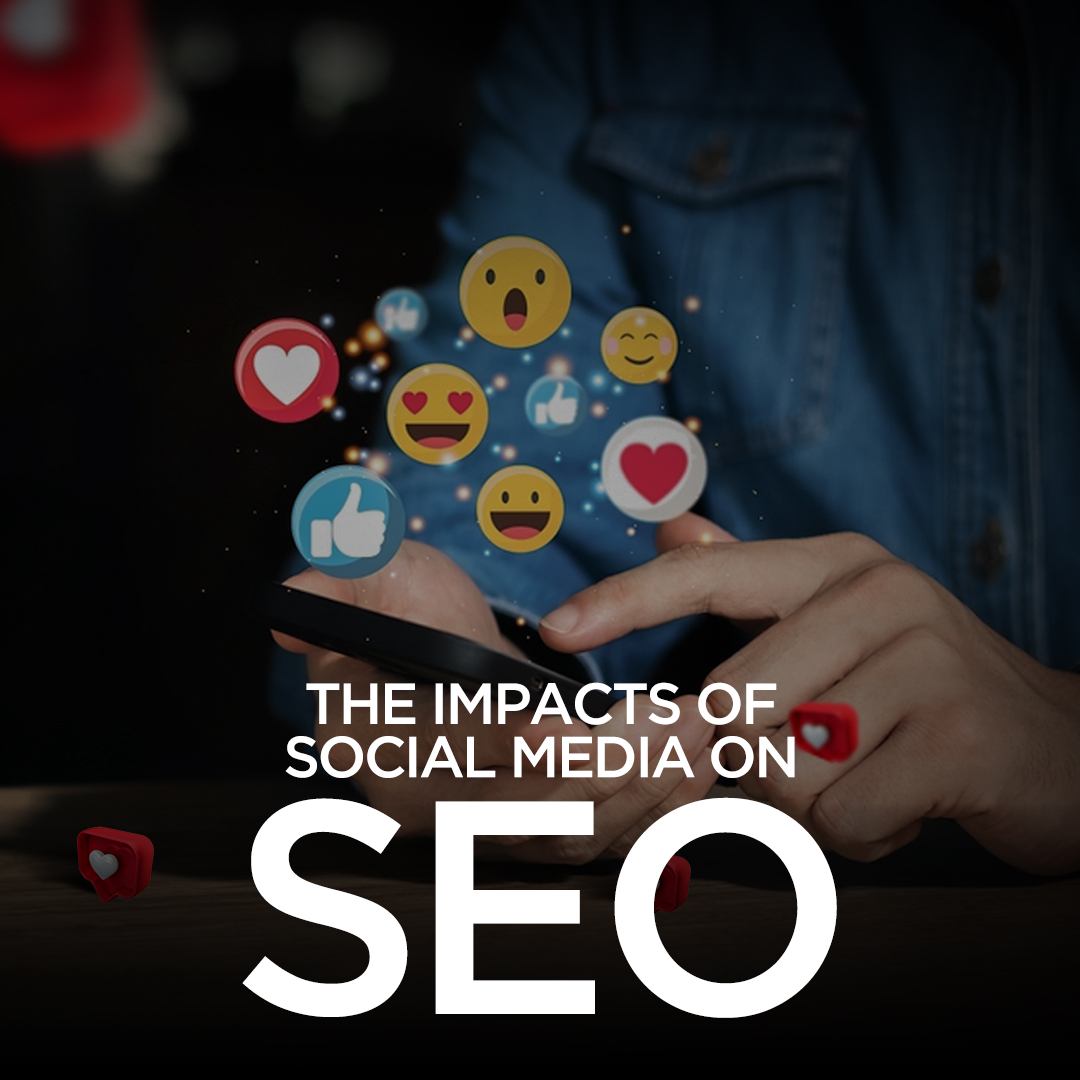Fundamental roles of SEO and social media strategy
In the rapidly changing digital landscape, understanding the fundamental roles of SEO and social media strategy is pivotal for businesses aiming to thrive online:
Importance of SEO in the Digital Landscape:
- SEO, or Search Engine Optimization, is crucial for businesses looking to enhance their online visibility and attract organic traffic from search engines like Google.
- Effective SEO strategies ensure that websites rank higher in search results, driving more qualified leads and potential customers to businesses.
Significance of Integrating Social Media Strategy with SEO:
- Social media has become integral to digital marketing strategies, offering platforms to engage directly with audiences and build brand presence.
- Integrating social media strategy with SEO enhances brand visibility across platforms, amplifies content reach, and facilitates community engagement.
- Social signals such as likes, shares, and comments contribute to SEO rankings, making a cohesive social media strategy essential for maximizing online presence and SEO effectiveness.
Understanding these foundational aspects sets the stage for exploring how businesses can utilize both SEO and social media strategy together to achieve their digital marketing goals. This blog explores how integrating social media strategies with SEO can lead to greater visibility and engagement for businesses.
Understanding Social Media Signals in SEO

Social media signals are actions that users take on social media platforms, which indicate engagement and interaction with content. These signals play a crucial role in how search engines evaluate the popularity and relevance of a website. Here’s a breakdown:
Definition of Social Media Signals:
Social media signals refer to activities such as likes, shares, comments, and mentions that users generate on social media platforms in response to content.
Types of Social Media Signals:
- Likes: Users express their approval or affinity for content by liking posts or pages.
- Shares: Users share content they find valuable or interesting with their network, amplifying its reach.
- Comments: Users engage directly with content by commenting, which can indicate deeper interest or discussion.
- Mentions: When users tag or mention a brand or individual, it can increase visibility and awareness.
How Search Engines Interpret Social Signals:
- Popularity and Engagement: Search engines like Google consider social signals as indicators of content quality and relevance. Higher engagement (more likes, shares, comments) suggests content that is valuable and trustworthy.
- Backlinks and Authority: Social shares can lead to more inbound links (backlinks), which are crucial for SEO as they enhance a website’s authority and credibility.
- Brand Awareness: Increased mentions and shares contribute to brand visibility, which can indirectly influence SEO by driving more branded searches.
Understanding and effectively utilizing these social media signals within a cohesive social media strategy can significantly enhance SEO efforts, increase online visibility, and drive meaningful engagement with the target audience.
Benefits of Integrating Social Media with SEO

Integrating social media with SEO offers several advantages for businesses aiming to strengthen their online presence and engagement:
Increased Brand Visibility and Awareness:
- Social media platforms allow businesses to reach a broader audience beyond traditional search engine results.
- Regular, engaging posts can increase brand recognition and recall among users.
Enhanced Content Distribution:
- Sharing content on social media channels helps amplify its reach quickly.
- Viral sharing potential can expose content to new audiences who may not have found it through search engines alone.
Building High-Quality Backlinks:
- Social media shares and mentions can generate inbound links to your website.
- These links are valuable for SEO, as they signal to search engines that your content is reputable and worth linking to.
Improved Website Traffic and Engagement Metrics:
- Active social media presence drives traffic to your website, boosting overall visitor numbers.
- Engaged social media followers are more likely to explore your website, interact with content, and potentially convert into customers or leads.
By integrating social media strategy with SEO practices, businesses can enhance their online visibility, attract more visitors, and ultimately improve their digital marketing outcomes.
Strategies for Integrating Social Media and SEO

Integrating your social media strategy with SEO can significantly boost your online presence and engagement. Here are some effective strategies:
Optimizing Social Profiles for SEO:
- Keywords: Use relevant keywords in your social media profiles, including bio sections, to improve discoverability.
- Bios: Craft concise and compelling bios that clearly communicate your brand’s value proposition and include targeted keywords.
- Links: Ensure your social profiles link back to your website and other relevant online properties to enhance traffic and SEO authority.
Creating SEO-Friendly Social Media Content:
- Hashtags: Research and use trending and industry-specific hashtags to expand reach and connect with your target audience.
- Keywords: Incorporate SEO keywords naturally into your social media posts and content captions to optimize for search visibility.
- Quality Content: Publish high-quality, valuable content that resonates with your audience, encouraging engagement and shares.
Encouraging Social Sharing and Engagement:
- Call-to-Actions (CTAs): Include clear CTAs in your social media posts to prompt followers to share, like, or comment on your content.
- Interactive Content: Use polls, contests, and interactive features to increase engagement and encourage user participation.
- Respond and Engage: Actively engage with your audience by responding to comments, messages, and mentions, fostering a community around your brand.
Leveraging Influencers and Partnerships:
- Influencer Collaborations: Partner with influencers relevant to your industry or niche to reach their followers and gain credibility.
- Co-marketing Campaigns: Collaborate with complementary businesses or brands on joint campaigns to expand your reach and attract new audiences.
- User-Generated Content: Encourage customers and followers to create and share content related to your brand, leveraging their networks and increasing brand advocacy.
By implementing these integrated strategies, businesses can effectively leverage social media to enhance their SEO efforts, drive traffic to their websites, and foster meaningful engagement with their target audience.
Tools and Analytics for Measuring Social Media Strategy Impact

To effectively measure the impact of your social media strategy on SEO and overall digital marketing success, utilize the following tools and analytics platforms:
Tools for Tracking Social Media Metrics:
- Social Media Analytics Tools: Platforms like Hootsuite, Buffer, and Sprout Social provide insights into likes, shares, comments, and follower growth across multiple social networks.
- Native Platform Analytics: Each social media platform (e.g., Facebook Insights, Twitter Analytics) offers built-in analytics to track engagement metrics specific to that platform.
Analytics Platforms for Monitoring SEO Performance Influenced by Social Media:
- Google Analytics: Track traffic referrals from social media to your website, measure conversion rates, and analyze user behaviour.
- SEMrush: Analyze SEO performance metrics, keyword rankings, and backlinks influenced by social media engagement.
- Ahrefs: Monitor backlinks and organic search traffic influenced by social shares and mentions.
By utilizing these tools and analytics platforms, businesses can make informed decisions, optimize their SEO and social media strategy, and effectively measure the impact of their integrated marketing efforts.
Challenges and Considerations
Integrating social media strategy with SEO comes with various challenges and considerations that businesses need to address to ensure effective digital marketing:
Addressing Algorithm Changes and Updates:
- Social media and search engine algorithms frequently change, impacting how content is ranked and displayed.
- Staying updated with algorithm changes helps businesses adapt their social media and SEO strategies to maintain visibility and engagement.
Navigating Privacy Regulations and Ethical Considerations:
- Compliance with data privacy laws (e.g., GDPR, CCPA) is crucial when collecting and using customer data for social media and SEO purposes.
- Maintaining ethical practices in data handling builds trust with customers and avoids potential legal issues.
Managing Competitive Pressures in Digital Marketing:
- Increased competition in digital marketing requires businesses to differentiate themselves through innovative social media strategy aligned with SEO.
- Monitoring competitors’ strategies helps identify opportunities and adjust tactics to stay ahead in the competitive landscape.
Navigating these challenges requires a strategic approach to integrating social media and SEO effectively, ensuring compliance with regulations, and staying agile to adapt to industry changes and competitive pressures.
Future Trends in Social Media Strategy and SEO Integration

As digital marketing continues to evolve, the integration of social media strategy with SEO is expected to undergo several transformative trends and innovations:
Emerging Trends in integrating Social Media and SEO Strategies:
- Video Dominance: Increasing emphasis on video content across social platforms will influence SEO strategies, enhancing engagement and visibility.
- AI and Automation: Adoption of AI-driven tools for content personalization and predictive analytics will optimize social media marketing and SEO efforts.
- Voice Search Optimization: Growing use of voice search will necessitate SEO strategies tailored for conversational queries, impacting social media content creation.
Predictions for the Future of Digital Marketing and SEO:
- Integrated Marketing Ecosystem: Greater convergence of social media marketing, SEO, and other digital strategies into cohesive campaigns will drive holistic brand engagement.
- Personalized Experiences: Enhanced focus on personalized user experiences through data-driven insights will shape social media and SEO strategies.
- Augmented Reality (AR) and Virtual Reality (VR): Integration of AR and VR technologies into social media platforms will revolutionize content delivery and user engagement.
Opportunities for Innovation in Social Media and SEO Integration:
- Advanced Analytics: Utilizing advanced analytics platforms to measure cross-channel performance and optimize campaign strategies.
- Influencer Marketing: Leveraging influencers strategically to amplify brand reach and credibility across social and search platforms.
- Content Amplification: Using social media channels to amplify SEO-optimized content and drive organic traffic to websites.
These trends and opportunities highlight the evolving landscape of social media marketing and SEO integration, presenting avenues for businesses to innovate, engage effectively with audiences, and achieve sustainable growth in digital marketing.
Conclusion
In conclusion, combining a unified social media strategy with SEO is crucial for attaining substantial success in digital marketing. Key points to remember include:
- Enhanced Visibility and Engagement: Social media signals like likes, shares, and comments contribute to improved SEO rankings by indicating content popularity and relevance.
- Content Amplification: Social media platforms facilitate wider content distribution, reaching diverse audiences beyond traditional search engine results.
- Building Authority: High-quality backlinks generated from social shares can boost website authority and credibility in search engine algorithms.
- Driving Traffic and Engagement: A cohesive strategy aligning social media and SEO efforts leads to increased website traffic, higher engagement metrics, and ultimately, better conversion rates.
In conclusion, businesses that prioritize a unified approach to integrating social media strategy with SEO are better positioned to capitalize on digital marketing opportunities, enhance brand visibility, and achieve lasting success in the competitive online landscape.




